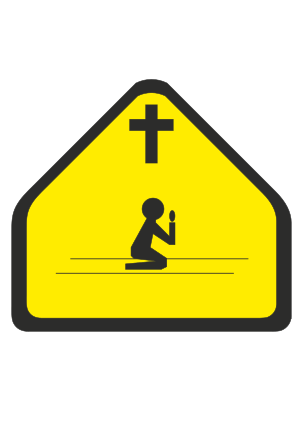Forgiveness and Reconciliation
This past Tuesday night I had a conversation about forgiveness (with a long interlude on fiction writing!) with author Nick May. Nick was a last minute stand-in for two guests. My wife Jody was unable to participate because of a sore throat. Renee Crosby, author of the recent release The Fringe, had catastrophic technical difficulties, and Nick was available. We’re going to interview him along with his colleague, contemporary, and fellow fiction author Heath Taws on March 31. Besides being a fiction author (Megabelt, Minutemen, Molecricket), Nick is the pastor of Northstar Church’s Pensacola campus. Here’s the video:
One of the topics we discussed was Matthew 6:14-15: “If you forgive other people their trespasses, your heavenly father will forgive yours. But if you don’t forgive other people, neither will your father forgive your trespasses.” Interesting and harsh! Well, perhaps just realistic. I wonder if the person who remains unforgiving can ever truly be forgiven. Nick and I discuss this in the video. I think that forgiveness involves reconciliation, i.e., it’s a two way street. This doesn’t mean that an individual can’t get it started, and can’t benefit from a forgiving attitude. On the contrary, I think it’s important to give up the burden of resentment against someone else, even if they will not participate. In addition, someone has to get started. What I’m suggesting is that unforgiveness creates an atmosphere in which it’s hard, or even impossible, to receive forgiveness. Maintaining a separation between ourselves and other people also creates a separation between us and God.
One thing I didn’t have time to bring up in the discussion is a suggested translation in Leviticus 5:17 from Dr. Jacob Milgrom, author of the Anchor Bible commentary on Leviticus 5:17. This passage refers to someone who has transgressed and doesn’t know that he has done so. Milgrom suggests that the Hebrew ‘asham when it occurs without an object, means “feel guilt” as opposed to incurring guilt or being guilty. So this passage would best be rendered: “If a person transgresses, and has committed one of the acts with the commands forbid but he doesn’t know it, when he feels guilt, he will bear his responsibility.” The idea is that this sacrifice is for a time when one feels guilty, but is uncertain of what act may have caused that guilt. Thus we have a sacrifice for making oneself feel better! (This last line is my point, not Milgrom’s.) This is covered in detail on pages 343-345 of Volume 1 of his commentary, part of his comments on the reparation offering. I found his suggestion entirely convincing.
Finally, this morning in my e-mail I received my regular eNewsletter from Rabbi Moffic, who was talking about forgiveness. His particular topic was forgiving ourselves, or receiving forgiveness. His remarks (and the Jewish parable he tells) are well worthwhile. While you’re at his site, consider subscribing to his newsletter. I’ve found it very helpful.


Henry, I’m not sure what you mean by forgiveness involves reconciliation, as you didn’t elaborate. I find that these are two entirely separate acts that when conflated cause enormous problems and complicate forgiveness. This is to say that if a person who has been wronged believes that to forgive means to reconcile, when reconciliation is either impossible, dangerous, or unlikely, that person is unable to forgive. In actuality, forgiveness is a one-way street. It’s all about the attitude of the wronged person and has nothing to do with the attitude of the one who wrongs. Forgiveness amounts to making a commitment not to stand in the way of the well-being of the one who wrongs. If that opens the door to reconciliation, wonderful. If not, that is not the responsibility of the one who was wronged. At least, this is the way I see it.
I think what you find is me having a great deal of difficulty coming up with the right words. What I’m trying to get at is that it is hard to receive forgiveness when one is, oneself, not willing to forgive, whether than involves forgiving oneself or forgiving a neighbor. I think if both sides repent (in the sense of turn around) and both forgive, then you would have reconciliation, though you are right that it is not the same thing. Nonetheless, reconciliation can’t come without forgiveness, I would think.
So I’m entirely willing to work on how to say this!